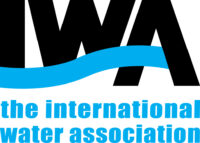Format
Short-term courses
Water Policy Analysis: A Systems Approach
Target Audience
This course is primarily geared towards working professionals.
Prerequisites:
This Master level course requires the ability to think critically and to engage in active self-learning, peer-learning and planning.
The course does not require specific prior knowledge on policy analysis. Some practical experience in working in a water or environmental policy context would be a bonus.
Description
*IWA Members can avail a 10% discount on the ConnectPlus platform* (Please note that the IWA member discount of 10% is only valid for the full programme and not individual courses).
Introduction
During the first week, you will be introduced to the content of the course, the learning platform, the course instructors and your fellow course participants. By the end of this week, you should be ready to fully engage with the specific content and learning activities in the course.
Topic 1: The art and craft of policy analysis
In this topic, you will learn about the role that policy analysis plays in decision-making. We will cover a so-called ‘textbook’ (linear) approach to policy analysis and planning but will also see how actual practice is often different. This calls for a more comprehensive approach that reflects the different interests of multiple stakeholders. Based on a better understanding of the more complex reality of policy making, you will learn about the different roles that you may play as a policy analyst.
Topic 2: Problem demarcation
Building on key take-away messages from Topic 1, you will continue learning methods and techniques to structure complex policy problems. In this topic, you will apply two specific methods to develop an initial problem formulation that meets the needs, priorities and intervention possibilities of key stakeholders. This helps define initial boundaries to the multi-actor system that will be central in further policy analysis. The methods offered will be stakeholder-sensitive and will enable you to discuss crucial aspects and choices with your key stakeholders. The methods that you will apply are based on value-focused thinking: means-ends analysis and objective trees.
Topic 3: Systems analysis
In this topic, you will learn how to develop a conceptual diagram to organise the key factors and elements that play a role in complex multi-actor systems. Systems thinking is fundamental to tackling complex problems and a conceptual diagram of the system under analysis shows how those factors and elements are linked by the cause-effect relationships that policies aim to influence. These system diagrams build on the developed problem demarcation and are specifically suited for further policy analysis. They include specific components for possible policy interventions and to assess whether policy outcomes can be expected to meet important policy objectives.
Topic 4: Plan of action
In this final topic, you will learn about key elements that are typically included in a sound plan of action for policy analysis. You will apply the insights and methods from the previous topics to develop a detailed problem description and design a plan of action for a policy issue of your choice.
Learning objectives
Adequate water supply and appropriate environmental policies are prerequisites for sustainable development. However, experts and analysts working on policy processes know that simply preparing scientific reports or policy briefs does not automatically lead to the successful implementation of policy.
This course is designed for professionals interested in learning the tools and methods which can connect sound analysis and science to address complex policy problems, especially in the water sector.
Formulating policy issues in a way that is clear for different stakeholders and decision-makers is a critical element in policy analysis. Unfortunately, this step is often overlooked, as experts or policy-makers too easily assume that their problem definitions are a ‘given’ and are shared by all. Policies will not be effective if they are not based on a good understanding of the actual problem that is to be addressed, taking into account different actors involved, the system they aim to influence and the factors that may support or hinder their implementation and the achievement of intended goals.
In this course, you will learn modern concepts of policy analysis and use hands-on methods to apply systems thinking to structure complex problems and develop effective designs for policy analysis. This will empower you to contribute to policies that consider society, economy and the environment which will support sustainable development.
After taking this course, you will be able to:
- Support more effective policy making in a multi-actor setting.
- Structure complex policy problems in a way that enables different stakeholders to discuss issues and agree on useful ways forward.
- Apply conceptual systems analysis to guide subsequent research activities and connect evidence and science to inform policy decisions.
This course, together with the course Multi-stakeholder Strategies, is part of the program Water Strategy and Planning offered by TU Delft and the IHE Delft Institute for Water Education. This program provides state-of-the-art approaches and tools required to deal with complex and multi-actor challenges in the water sector.
Paid
Certification

